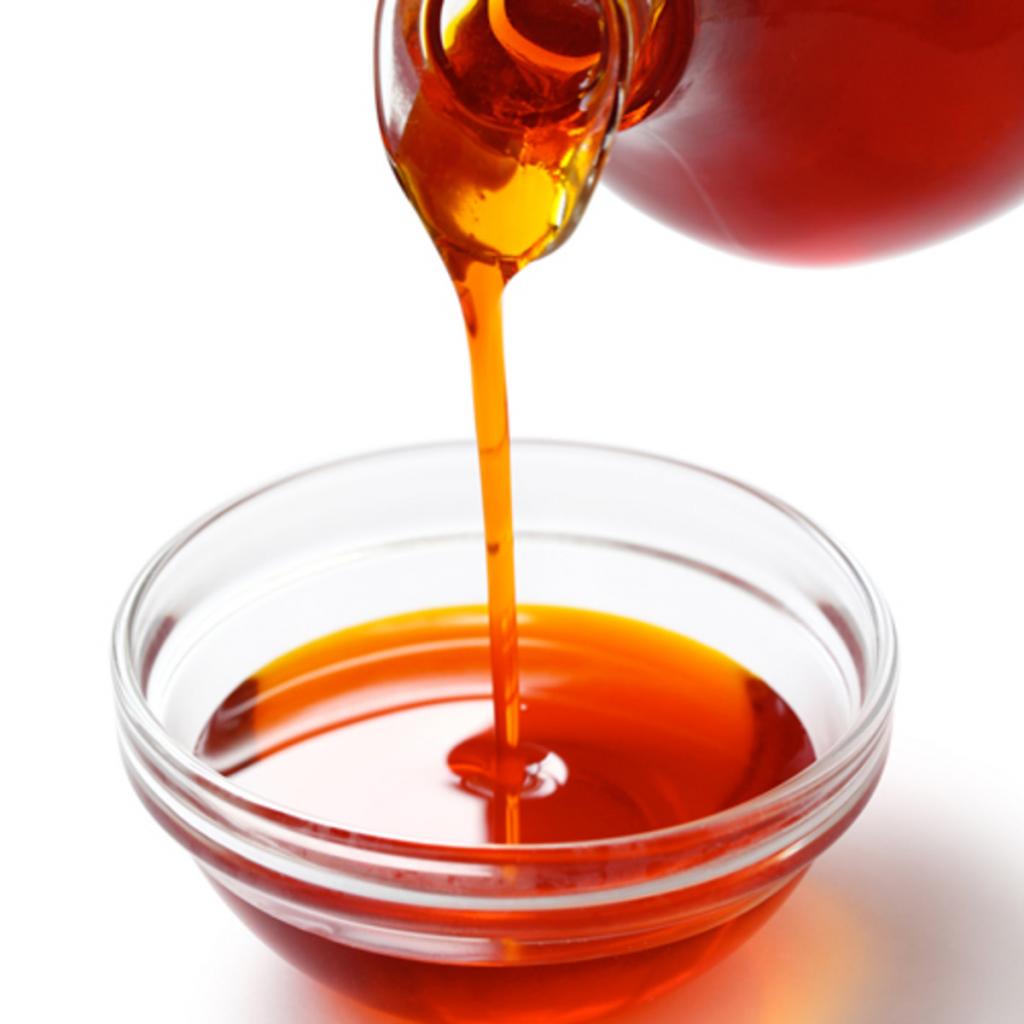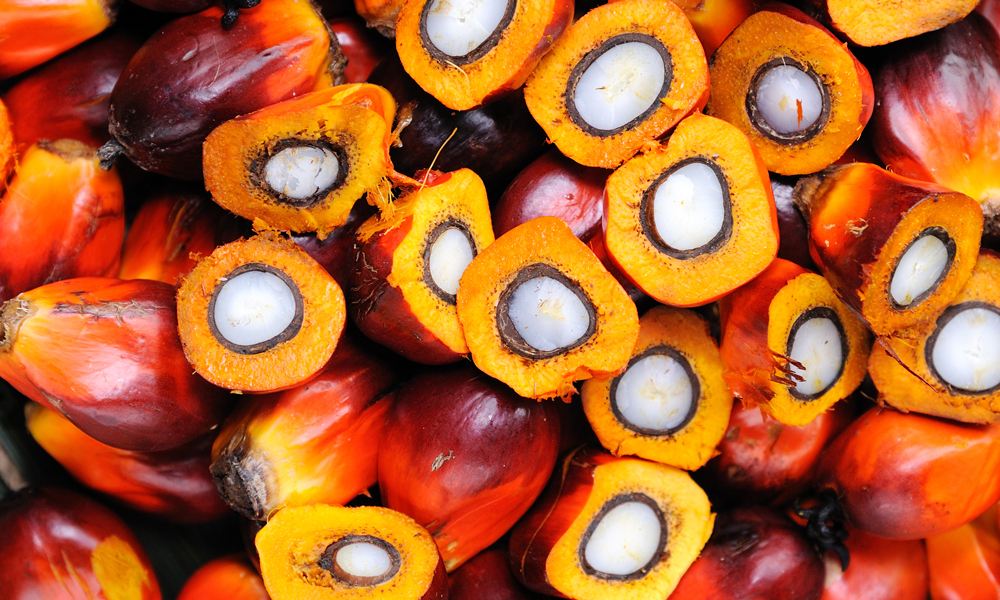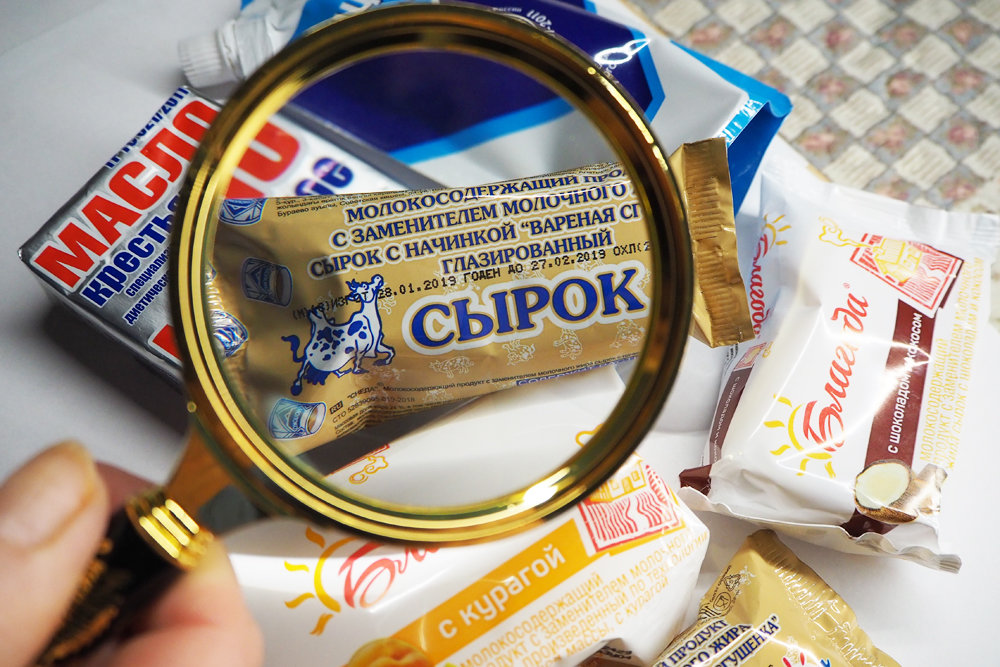In Russia, journalists, food workers, State Duma deputies are of the opinion that palm oil is not digested, it harms the heart and causes a malignant tumor. Let us briefly consider the harm of palm oil to human health: is it really there or are these myths?
What is palm oil?
Palm oil is obtained from the fruits of oil palm, which grows in West Africa. About 5 thousand years ago, palm oil was used there for cooking. In the eighteenth century, the product came to Europe and gradually spread throughout the world. Today, the main importer is the countries of Asia.
At temperatures up to 25 degrees, the oil remains solid, unlike other vegetable oils. In terms of properties, it is rather fat than oil. Its melting point is 27 degrees Celsius, and it becomes liquid only at 42 degrees. The semi-solid consistency is due to the content of palmitic acid, which is present in most animal fats.

Application in the food industry
Is palm oil harmful to human health? Its use in the food industry, for example, in the icing of cakes, was allowed back in Soviet times. In those days, the country's top nutritionists did not consider palm oil to be harmful.
According to the Federal Customs Service, exports increased sharply in the 1998 crisis, when Russians began to prepare cheap products in tropical oil. In 1997, 100 tons of oil were delivered to Russia, and next year - 390 tons.
By the end of the 2000s, the problem became more acute: manufacturers made dairy products without milk, without reflecting it on the labels. The technical regulations of 2008 made it possible to call products from exotic oil in terms that are close to dairy, for example, “sour cream”, “cheese” and the like.
It was forbidden to deceive buyers only in 2012. Then, at the highest state level, the concepts of “vegetable-milk” (less than half of natural milk) and “milk-vegetable” (more than half of milk) were legalized.
These restrictions were not enough: it is very beneficial for manufacturers to replace milk fat with vegetable fat. Palm oil allows you to create a very cheap product. A ton of “palm tree” costs about 570 dollars. (31.1 thousand rubles), and milk fat - from 2 900 dollars. (188.8 thousand rubles).

So, the manufacturer gives the dairy product for quality, but in fact adds from 60 to 100% substitute, turning into a millionaire in six months. In Asia, one can hear that owning a plantation of oil palm trees is more profitable than having an oil well.
Ban palm oil
Different states struggle with exotic palm oil in different ways. India and Thailand, for example, have imposed additional taxes on palm imports. In France, it is planned to increase the tax on food products, the production of which used palm oil, by 300%.
In 2018, the UK supermarket chain announced its intention to exclude the ingredient from its own products in an effort to stop the rapid decline in tropical forests in southeastern Asia.
In the same year, the EU parliament adopted a directive on the basis of which the investment of fuel, including on the basis of the "palm tree", will be reduced. Jakarta officially opposed the decree, because this would entail a reduction in oil exports to the European Union.
In May 2018, WHO introduced the REPLACE package of measures to the public. This is a step-by-step guide on eliminating industrial trans fats from food products around the world.
Claims for palm oil
What harm does palm oil do? Some industry representatives and nutritionists have several complaints about the product. “Palm” is credited with an increased content of harmful trans fats, which significantly increase the likelihood of developing serious pathologies of the cardiovascular system.

Often you can see in the media information that in the Russian Federation they deliver a low-quality product - palm oil, which is used for technical purposes. But the Customs Union monitors compliance with regulations that specify product requirements: the oil should not exceed the permissible standards for radionuclides, yeast, toxic components, and the degree of oxidation must be observed.
Oil manufacturers reputation
The use of palm oil is associated with the emergence of new environmental problems. To grow palm trees, plantations are expanded, tropical forests are cut down, which are the main habitat of many endangered animals.

The World Wide Fund for Nature does not oppose palm oil, but sharply criticizes the policies of many suppliers: instead of creating plantations on developed lands, they clear up new territories, burning what grows on them.
To support opponents of deforestation, many manufacturers began to market products marked “without palm oil”. This step in environmental protection was perceived by an ignorant public as a failure due to the fact that the product is harmful to health. The measure triggered numerous myths about the dangers of palm oil.

What is dangerous?
“Palma” greatly reduces production costs and increases the shelf life of food products. But is palm oil harmful to humans? The main hazards (and not only for health):
- The use of oil leads to heart disease, atherosclerosis, and can provoke oncology.
- Palm oil is used in the production cycle of a large number of products (“confectionery” or “vegetable fat” is indicated on the package), so a person loses vitamins and nutrients from the same cottage cheese or butter. The diet on this one ingredient is extremely meager.
- The product used for falsification is not properly processed and may not be suitable for human consumption. GOST clearly defines the permissible content of radionuclides, toxic elements, pesticides, requires storing oil in stainless steel cans, deodorizing and refining in a certain way. Raw materials for counterfeit are poured into plastic tanks not intended for transportation of this product. Fake oil may contain heavy metals: cadmium, lead, mercury, arsenic, non-food chemistry.
- Products with palm oil are cheaper than natural products, but are not always sold at a real price.
- Negative consequences of production in environmental and social terms. For mass cultivation, palm trees burn forests, reducing biodiversity and destroying ecosystems. Due to product production, between 1990 and 2008, 8% of forests were destroyed. Plantation work often does not respect human rights.
Palmitic fatty acid
The question of the dangers of palm oil for humans is related to the content of saturated acids in the product. They increase the level of cholesterol in the body, provoke atherosclerosis and disrupt the functioning of enzymes.
And yet: is palm oil so harmful to humans? In fact, palmitic acid does not affect the level of so-called bad cholesterol. It all depends on carbohydrates. While few of them, fatty acids are safe. Moreover, if you consume more saturated fats and less carbohydrates, this will lead to an increase in the level of good cholesterol. High carbohydrate intake makes fat a dangerous enemy.

Palm oil in baby formulas
The benefits and harms of palm oil for children are discussed especially lively. In children’s adapted mixtures, they add not oil, but acid, which is also present in natural human milk.
There are studies confirming that mixtures with palmitic acid are absorbed worse than without it. The acid forms insoluble compounds with calcium, which are naturally excreted from the body.
But there are works that compare the amount of calcium received by children who eat breast milk, mixtures with and without a "palm". And breast milk is not in the first position. So it’s completely wrong to say unequivocally that palmitin reduces the quality of infant formulas.
Other acids in the oil
The composition of palm oil includes palmitic (about 50%), oleic (from 35% to 45%) and linoleic (5%) acids. Palmitic acid is found in products of animal origin, so its deficiency threatens only vegans.
As for other acids, the value of oil is determined by the amount of linoleic acid: the higher it is, the more useful the grade of oil. In average quality vegetable oil usually contains 70-75% linoleic acid, in palm - only 5%.
The leader in oleic acid is olive oil. This acid prevents the deposition of fats and even contributes to their burning.
Carcinogenicity palm oil
The media claim that the harm of palm oil to human health is to provoke cancer. In reality, the connection with oncology has not been established. A review of scientific publications showed that the evidence is contradictory, and the research is scarce.
Cause of Cardiovascular Disease
In statements about what harm palm oil does to the body, it is often mentioned that the product causes serious diseases of the heart and blood vessels. Any hard fat (including milk, beef and pork fat, coconut oil, any fully or partially hydrogenated oils) contains a certain amount of trans fats, which cause significant harm to health.
100 g of butter contains 1.5 g of trans fats, 100 g of hard margarine - 20 g, 100 g of soft margarine - 7.4 g. There are no trans fats in palm oil if it is not hydrogenated, but there are saturated fats (as in meat and dairy products).
Saturated fats were previously considered harmful to the heart and blood vessels, but current data suggest that their moderate use does not significantly affect the risk of coronary disease, although it increases cholesterol.
Palm oil and trans fats
More recently, trans fats were actively used in the manufacture of food products. Now they are being replaced with palm oil - a natural and cheap product. The harm of palm oil to the human body is minimal compared with aggressive trans fats.

It is trans fats that are harmful to health. A diet with a large content of them increases the risk of developing pathologies of the cardiovascular system by 21%, mortality - by 28%.
According to WHO, the use of these substances leads to 500 thousand deaths from diseases annually. Given the frightening statistics, WHO has set standards for the consumption of unsafe foods: there should be no more than 1% trans fat in the diet.
Digestion difficulties
Is palm oil harmful to humans when it comes to the digestive system? In the intestines, “palm” breaks down into fatty acids and glycerin. If the pancreas is working properly, then digestion and absorption are almost maximum. Nature has provided enzymes for the normal digestion of fats of plant and animal origin.
Low quality
Palm oil is harmful to humans if the product is of poor quality. But most of the products that fall on store shelves are controlled by the Customs Union. The organization does not allow palm oil to be used in industry if it does not comply with special regulations. Is palm oil of bad quality harmful to humans? Of course, but such a product is almost never found in stores.